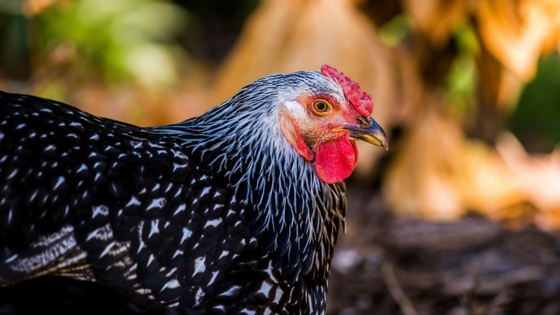All across America millions of families have begun raising a small chicken flock in the yard. Most have no experience, so many nature centers, farm stores, and garden centers are holding workshops on how to efficiently and humanely care for a few laying hens. Classes are filled with young parents who say they want to raise chickens so their children learn where food really comes from and develop responsibility by caring for animals. Their motivation isn’t just delicious food. It’s an educational family project.
Caring for chickens can give kids the satisfaction of helping provide family food while learning from these fascinating animals. At least that’s the theory often voiced by local food advocates. Does it work?
Perhaps it is best explained by two adults living far apart who grew up in suburban Iowa. From their infancy, chickens were part of their lives, and their responsibilities caring for the birds grew as they did. They fed and watered the flock, collected eggs, witnessed butchering, and even cleaned manure out of the coop and dug it into the garden’s soil.
Dan Patterson is now a 38-year-old journalist based in Brooklyn, New York. He and his partner live in an apartment high above a busy street. He hasn’t tended chickens since leaving home two decades ago but here are his memories:
“Chickens are incredibly annoying creatures. They are dinosaurs, and are not pets. They are loud, messy, require constant tending, and operate on a remarkably inconvenient schedule. Chickens will jolt you from a restful slumber at an ungodly early hour. Chickens will force you into the brutal cold to check for eggs. Chickens will require food from dinner scraps.
“But these qualities, in aggregate, create a wonderful learning experience and are analogues for life. Few things will make you appreciate a full stomach by recycling dinner, then watching the stuff you otherwise would have tossed in the garbage magically become life-sustaining food. Few experiences will ingrain a sense of responsibility like the threat of a fox sneaking through an open pen door, or burrowing under a carelessly tended fence. And few experiences will help you appreciate the majesty of daybreak like quieting a crowing rooster at 6 a.m.
“Chickens are not magical creatures. They’re annoying creatures. But they’re annoying creatures that, through experience, teach us important human values.”
Dan’s sister, Nancy Patterson, is a 34-year-old conservation professional living with her husband in an Alaskan apartment. From her toddler days until high school graduation she cared for the backyard flock. Here’s what childhood chickens did for her:
“Raising chickens was a fun and helpful learning experience. I remember how exciting it was to receive the box of peeping chicks in the mail, set them under the warming lamp and watch them grow their first feathers, then as they got bigger, lay their first eggs. We saved our food scraps, or “gulch,” to feed to the birds. They turned the scraps into food with eggs and into fertilizer with their poop. Added to the garden, it meant summer vegetables grew strong and nutritious and created a closed-loop food system. We learned that food grows, gets recycled, and turns into more food when you take care of a system.

“I will forever love fresh eggs and I still seek out locally grown eggs as much as possible everywhere we live. Nothing beats that bright orange yolk and the fresh taste of a homegrown healthy egg. As a kid, I collected and sold eggs, which also helped me learn about the value of raising something, tending animals, and selling to market. The egg money went into our college fund. That delayed return meant that I knew that part of my college education came from a lifelong project of raising chickens and selling eggs.
“Someday I hope we will have a little land and can have a few chickens for eggs. I love that raising chickens can make one small positive difference to reduce food waste in my own backyard and that from it I can eat fresh, local, sustainable food.”
So here we have two perspectives on growing up with chickens, yet, each comes to a compatible conclusion about the value of keeping a backyard flock.